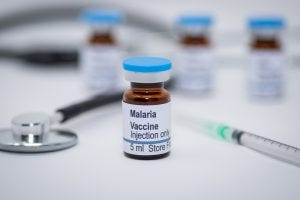
BioNTech aims to develop the first vaccine for malaria using the same mRNA technology behind its COVID-19 success.
BioNTech’s BNT162b2 became the first messenger RNA (mRNA) COVID-19 vaccine to receive emergency use approval in December 2020. Now the German firm has launched its Malaria project, which aims to produce a successful malaria vaccine and create sustainable production and supply in Africa.
According to the firm, it will evaluate various vaccine candidates that feature known malaria trargets such as the circumsporozoite protein (CSP), including antigens found in the pre-clinical research phase.

Image: iStock/Manjurul
“We learned from the COVID-19 program that multiple mRNA vaccines can be tested in parallel to identify the candidate which works best in early clinical trials,” Ugur Sahin, CEO and co-founder of BioNTech said at kENUP Foundation’s Fighting Infectious Diseases on the African Continent press conference.
He continued: “This is one of the concepts that we would like to apply because today it is not known which targets are the most suitable ones and we will connect target discovery [and] antigen discovery with preclinical and clinical testing of multiple candidates.”
The most successful candidate will be chosen for clinical development and the firm aim for clinical trials to take place at the end of 2022.
BioNTech is also looking at the possibility of setting up mRNA manufacturing facilities on its own, or with partners. The plants are predicated to produce multiple mRNA-based vaccines upon approval to ensure security of supply.
The firm aims to co-locate its African manufacturing capacity with the tech-transfer hubs under development by the World Health Organization (WHO), in conjunction with the African production strategy formed by the Africa CDC.
The strategy intends to increase the capacity of low- and middle-income countries to produce vaccines and increase global accessibility.
The malaria vaccine program is what the firm has dubbed as “an extension” of BioNTech’s COVID-19 vaccine.
“We have built up a huge safety database and of this year, there will be more than one billion people who have received our vaccine a huge safety database, which makes the technology and the mRNA itself more acceptable,” said Sahin.
About the Author
You May Also Like









